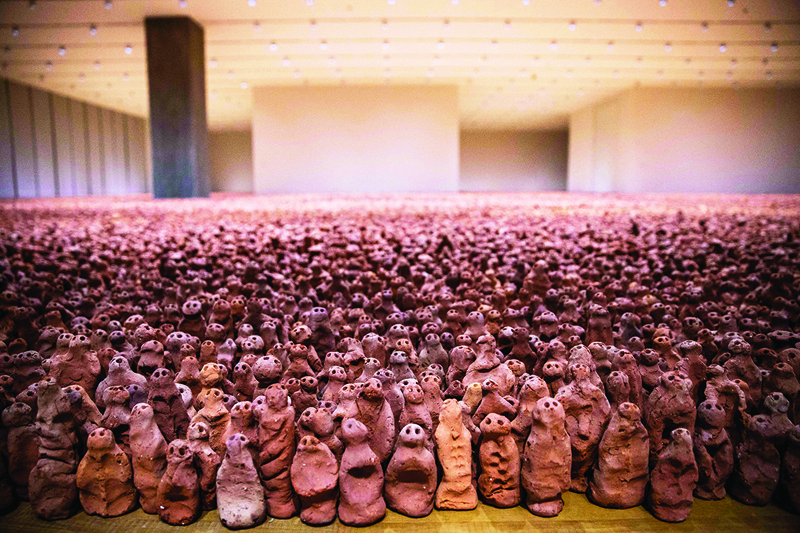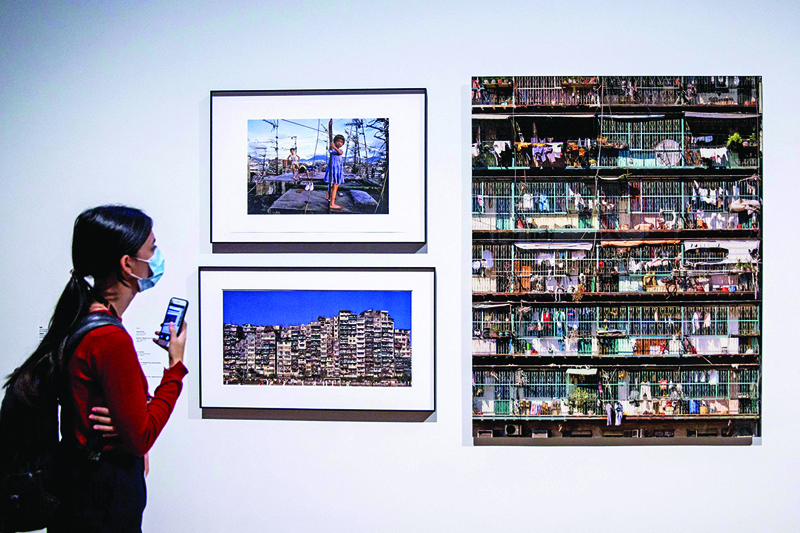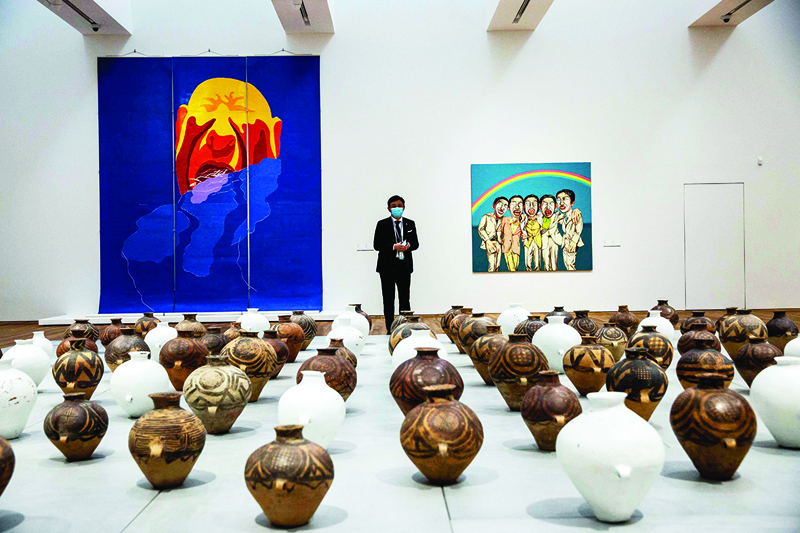 Asian Fields by Anthony Gormley is seen during a press tour of the new M+ Museum in Hong Kong.—AFP photos
Asian Fields by Anthony Gormley is seen during a press tour of the new M+ Museum in Hong Kong.—AFP photos
Hong Kong's multimillion-dollar art museum M+ will open today without dissident artist Ai Weiwei's "middle finger series", highlighting concerns over creative freedom as authorities censor criticism in the city. The 65,000-square-metre (700,000-square-foot) venue on Hong Kong's Victoria Harbor waterfront aims to rival Western leaders in contemporary art curation, such as London's Tate Modern and New York's Museum of Modern Art. After years of delay, senior officials from both the Hong Kong and Chinese governments cut the ribbon yesterday. But a photo series by Chinese artist Ai in one of the museum's collections will not be on display.
In the series, Ai is showing his middle finger to institutions around the world, including the White House, Germany's Reichstag-and Beijing's Tiananmen Square. "Artistic expression is not above the law," said Henry Tang, the official in charge of the cultural park where the museum is located. "We won't show the middle finger photos but we will show Ai Weiwei's artwork," Tang told reporters yesterday.
 A women looks at photos of Hong Kong by Canadian photographer Greg Girard.
A women looks at photos of Hong Kong by Canadian photographer Greg Girard.
Earlier this year, pro-Beijing politicians said Ai's photo of Tiananmen Square in the series was a "national security threat". This prompted Swiss collector Uli Sigg, whose massive donation to M+ included Ai's series, to issue an open letter that said "there is a different understanding in much of China-and obviously in parts of Hong Kong society... of what contemporary art is about".
Tang confirmed that the photo had been censored and M+ welcomed vetting by the police's national security unit. "If there are any works that the national security department thinks... violated the law, we will act according to the law," Tang said. Censorship at M+ is not the only indication that freedom of expression in Hong Kong's once-vibrant arts scene is declining.
Insiders say self-censorship had been on the rise in recent years, but the broad wording of Hong Kong's national security law-and the fervor with which influential pro-Beijing figures wish to see it applied-added an extra layer of risk. The law, passed in June last year, targets anything deemed "secession, subversion, terrorism or collusion with foreign forces" and has quickly criminalized a host of political views. Last month, Hong Kong passed a toughened film censorship law, empowering authorities to ban past films over "national security" threats and impose stiffer penalties for any breaches. - AFP
 Whitewash (1995-2000) by Chinese artist Ai Weiwei is seen during a press tour.
Whitewash (1995-2000) by Chinese artist Ai Weiwei is seen during a press tour.




